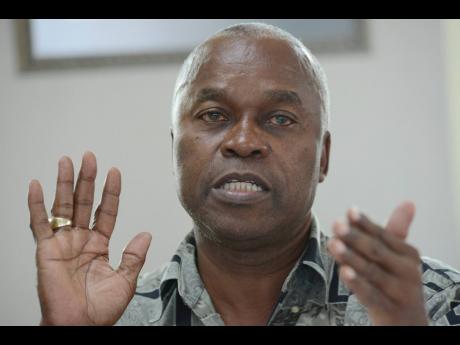US called bully after appeal blow as high-seas police
A ruling by the United States Court of Appeals that at least one provision within the country’s Maritime Drug Law Enforcement Act is unconstitutional may undercut America’s role as high-seas police, drawing praise as the right call by Jamaican...
A ruling by the United States Court of Appeals that at least one provision within the country’s Maritime Drug Law Enforcement Act is unconstitutional may undercut America’s role as high-seas police, drawing praise as the right call by Jamaican attorney-at-law Bert Samuels.
The act gives the US Coast Guard the power to arrest drug smugglers aboard an unregistered vessel anywhere in international waters, even if the contraband is not destined for the North American country.
It treats the shipment of illicit drugs on the high seas as a crime against the US.
Samuels has argued that the US has, for years, leveraged the legislation to bully countries of little means, including Jamaica, into yielding jurisdiction, making them complicit in what he deems is an illegal act.
“The US’s approach to the high seas has always been that they are the world police and nations who depend on them to support their maritime fight against drugs seem not to be dealing with the US as equal arms,” Samuels said in a Gleaner interview on Thursday.
“The US’s conduct on the high seas is to deny people due process. A lot of these Caribbean and Latin American countries, their equipment comes from the US government. So, whenever they ask us to yield jurisdiction, it is a bullying tactic. I’m glad for this judgment out of the US,” he added.
His comments come amid international headlines that the legislation, considered a central weapon in the US war on drugs, is under threat following a January ruling of the First Circuit Court of Appeals in Boston that has largely gone unnoticed.
On Thursday, The Associated Press reported that a three-panel judge of the court found that one of the law’s provisions – disavowing a captain’s claim of nationality – was an unconstitutional extension of US policing powers beyond America’s borders.
It said that the ruling came after Costa Rican Jeffri Dávila-Reyes appealed his 10-year conviction.
Dávila-Reyes and two other men were caught with cocaine in international waters by the US Coast Guard. The men were reportedly headed to Jamaica.
Dávila-Reyes reportedly said that the vessel was registered in Costa Rica but did not have proof.
The Costa Rican government subsequently said that it could not confirm or deny Dávila-Reyes’ claim.
He and the other men were arrested and sentenced.
Samuels pointed to two instances in which he said that the US Coast Guard destroyed Jamaica vessels at sea after alleging to have found illegal drugs on board.
In one instance, he said that the Jamaican Government yielded to the Coast Guard’s request for jurisdiction of Jamaica-registered vessel Lady Lawla and its crew members.
The vessel was subsequently searched and liquid cocaine said to have been found. Four fishermen were detained and the vessel destroyed by the US Coast Guard.
The Southern District Court of Florida subsequently ruled that their detention be terminated after it was revealed that there was no cocaine onboard, Samuels said.
They were released in December 2020 and are now seeking compensation.
In the second case, he said, another Jamaican boat was destroyed by coastguardsmen after claiming that ganja, or marijuana, smuggled by the fishermen was thrown overboard.
Samuels said no case was brought against the men when they appeared in a Florida court. He said, as a result, the men were “caused” to plead guilty to lying to a federal agent about their intended destination because of their desire to return home.
“Against that background, one can see the arrogance of the US that she can police the entire world; she breaks the rule. The Boston court has rightly said due is due to all persons in the world,” said Samuels.
“It’s not just for American citizens. You must get solid and concrete evidence before you can move to conviction and before you can move to deprive people of their rights.”

